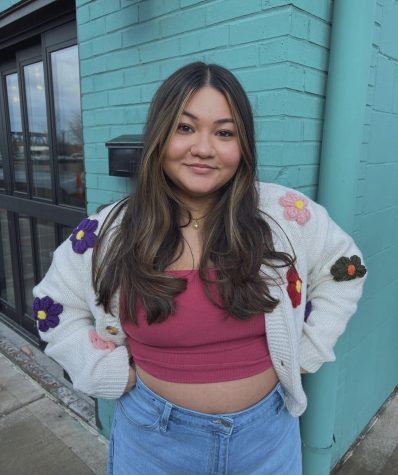The Met Gala stands as the single event synonymous with stature and prestige far removed from the realities of the common man. The luxurious ambiance of the occasion created by Ana Wintour’s handpicked theme is the culprit responsible for amassing the unwavering interest of the public while the celebrities adorned in refined designer ensembles operate as the accomplices.
To characterize the program as influential and timeless would be an understatement.
In a world where the exciting buzz shifts from music festivals or an internet dance or “must-have” fashion pieces, the Met Gala stands as the pinnacle of pop culture shrouded in ambiguity yet desired by influencers, celebrities, diplomats and everyday people.
As the center of attention, the attendees hold a responsibility to be cautious of the messaging behind the chosen themes as it reaches a widespread audience. This year’s theme chose to honor Karl Lagerfield, a fashion icon widely recognized for his work as the creative director of Chanel.
His seemingly dignified reputation acts as a cloak to shield the abhorrent beliefs he held, ones that shouldn’t be permitted let alone celebrated. Prior to his death in 2019, Lagerfield was surrounded in controversy regarding statements he had made on the topics of woman’s bodies, gay marriage, the #MeToo movement and immigrants.
During an interview in 2018 with Numero Magazine, Lagerfeld shared his candid opinion invalidating the victims of the #MeToo movement. “What shocks me most in all of this are the starlets who have taken 20 years to remember what happened. Not to mention the fact there are no prosecution witnesses,” Lagerfeld stated.
Victims of sexual assault— especially in the entertainment industry— are often in compromised positions as they are forced to share the professional stage with their abusers. Models such as Emma Appleton and Kate Upton are among many others who revealed the name of their abuser, Terry Richardson, years after their work-related ties were cut off.
Lagerfeld, who has been in the industry since the 1950’s, should be well aware of the role that power disparity plays in hindering those who have been wronged from speaking out. Instead of acknowledging the hurdles in place that silence victims, he chose to condemn them. “All their accusations of harassment, they have become quite toxic,” he stated in Numero Magazine.
The designer’s close proximity to women of impressionable ages through his work should have been concerning. The field of modeling is notorious for its discriminatory practices and propagations of Eurocentric standards. Rather than using his influence to create a safer environment for young models, he worked to uphold those standards. In 2009, when the magazine Brigitte announced its campaign to feature models with “realistic bodies,” Lagerfeld was repulsed by the idea.“These are fat mummies sitting with their bags of crisps in front of the television, saying that thin models are ugly,” he responsed.
Lagerfeld’s disdain extended well beyond the realm of fashion. When he wasn’t critiquing the industry, he was meddling in matters of humanity disguised as politics. In 2015, German Chancellor Angela Merkel, allowed one million Syrian refugees into the nation. Lagerfeld created a twisted narrative pitting the Jewish people against the Syrians to condemn her for what he thought to be incorrect. “One cannot — even if there are decades between them — kill millions of Jews so you can bring millions of their worst enemies in their place,” he stated.
He continued his despicable commentary by spreading anti-semetic propaganda. “I know someone in Germany who took a young Syrian and after four days said, ‘The greatest thing Germany invented was the Holocaust,’ ‘ he stated in an interview.
The 2023 program lifted the cloak of activism that beloved celebrities wear to garner public support.SeniorTommy Glennon was able to see through their hypocritical nature. “Lagerfeld’s comments regarding the bodies of women and his unsolicited critique of plus-size celebrities is the tip of the iceberg when it comes to his transgressions, but it boils down to glorifying another rich old white man. I was taken aback when I saw how many celebrities pulled looks that paid homage to his work, given his actions.” Glennon shared.
Model Gigi Hadid was one of the most avid supporters of the #MeTooMovement, yet her advocacy for these women was nowhere to be seen when she appeared at the Met. Lizzo’s appearance was also rather quizzical, as she openly supports the body positivity movement.
Some individuals, such as senior Sarah Chen, see Lizzo’s appearance as a protest to the beliefs held by Lagerfeld while others believe there are better ways to protest an issue. ”Repping/representing/showcasing Lagerfeld with the clothes that you’re wearing without addressing/acknowledging the history behind his misogynistic/fatphobic/homophobic words is extremely dangerous. It’s possible to acknowledge the strides he made in the fashion industry and condemn his actions/statements at the same time, but to attend the met knowing the entire event was an homage to him, shows that almost all of these celebrities don’t prioritize accountability in the slightest” states senior Sarah Chen.
Karl Lagerfeld is a disappointment of a public figure, but the Met Gala and its attendees are the true failures by designating a night to act as an ode to him.









